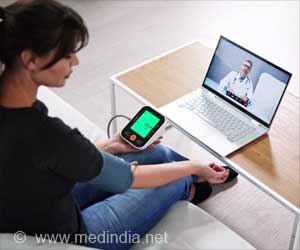Q: What is home telehealth?
A: Home Telehealth (HT) technology is a tool using communication technology, enabling patients with chronic diseases to play an active role in management. HT allows patients to transmit vital health information and parameters from their home to physicians’ offices and, in turn, receive health care and advice from health care personnel based on the transmitted clinical information.
Q: Is it necessary to establish a doctor-patient relationship in person to avail telemedicine facilities?
A: In the US, rules vary depending on individual states. Many states including California do not require a personal visit prior to using telemedicine services, but some states such as Texas do.
Q: Are telemedicine services covered by Medicare?
A: In most cases, Medicare covers only live telemedicine i.e. a live video chat between a doctor and patient. The reason is to model a personal visit as closely as possible. Medicare also pays for store-and-forward telemedicine services, presently only in Hawaii and Alaska.
Q: Does Medicaid reimburse telemedicine services?
A: Medicaid plan specifically covers at least some telehealth services in almost all states in the United States; however, the coverage varies greatly in each state. State-specific information in the United States may be obtained on www.atawiki.org.
Q: Is the information shared on telemedicine services secure?
A: The information is secure only when using an encrypted platform designed for the specific purpose. However, video applications like Face time and Skype may not provide enough security.
Q: Will I get the same quality of health care via a telemedicine consultation as I get with at a doctor’s office?
A: Research has suggested that telemedicine offers a convenient, safe, cost-effective way of providing healthcare services, especially in places that lack quality healthcare.
Q: Who benefits from Telemedical services?
A: The patient, health care provider and the healthcare system, all benefit from telemedical services
.Patients can avail specialist health advice from their homes or local health facility without the need to travel to distant super-specialities. It reduces exposure to communicable diseases from other patients waiting at the doctor’s office. The health outcomes are comparable to personal visits to the doctor.
Physicians can see more patients in the same time duration thereby improving their efficiency. It also minimizes cancellations of office appointments.
The health care system also benefits since non-urgent patients may not visit the hospital, resulting in quicker consultations for people who require more urgent care in the hospital. Thus, telemedicine could improve the overall health of the population










